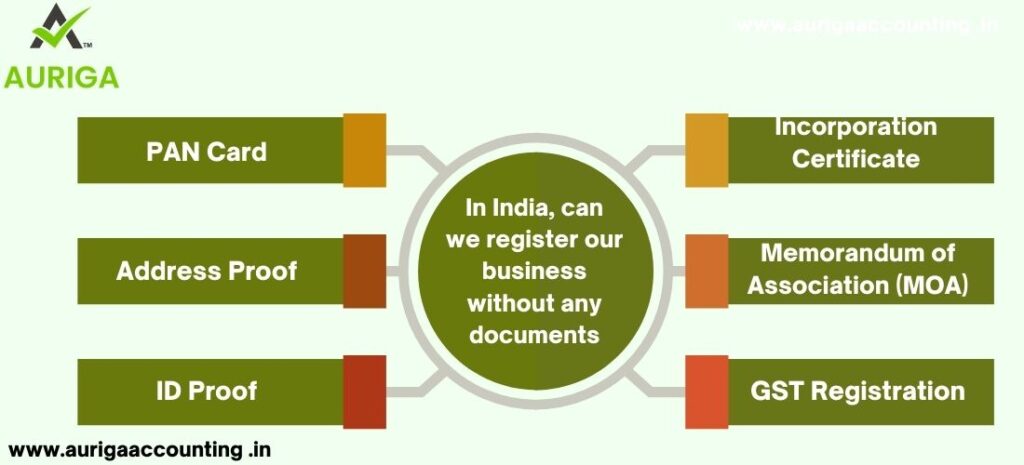
HOW CAN I REGISTER MY COMPANY NAME IN INDIA?
Introduction
ToggleYOU NEED TO KNOW HOW CAN I REGISTER MY COMPANY NAME IN INDIA?
Can I register my company name in India, follow these steps: Choose a unique and available name, check its availability on the Ministry of Corporate Affairs (MCA) website, and reserve it through the Reserve Unique Name (RUN) service. Prepare necessary documents, such as identity proof, address proof, and memorandum of association. Create a Digital Signature Certificate (DSC) and Director Identification Number (DIN). File the incorporation documents and pay the applicable fees on the MCA portal. Once approved, you will receive a Certificate of Incorporation. Consult with a professional or visit the MCA website for detailed guidance. Visitofficialwebsite
Preliminary Research and Planning
Research and Choose a Unique Name
Conduct a Thorough Name Search:
- Begin by searching the Ministry of Corporate Affairs (MCA) website to ensure that your desired company name is unique and not already registered.
- Check for trademarks and domain availability to avoid potential conflicts in the future.
2. Understand Naming Guidelines:
- Familiarize yourself with the MCA guidelines for naming a company, ensuring compliance with rules and restrictions.
- Avoid using sensitive words or those requiring regulatory approvals without obtaining necessary clearances.
3. Choose the Right Business Structure:
- Select an appropriate legal structure for your company, such as Private Limited Company, Limited Liability Partnership (LLP), or One Person Company (OPC).
- Consider factors like ownership, liability, and compliance requirements when deciding on the business structure.
4. Reserve the Chosen Name:
- Once you’ve finalized a unique name that complies with regulations, reserve it through the MCA portal’s ‘Name Reservation’ facility.
- The reservation is valid for 20 days, during which you should complete the necessary documentation for registration.
5. Draft the Memorandum of Association (MOA) and Articles of Association (AOA):
- Clearly define the company’s objectives, authorized capital, and internal regulations in the MOA.
- Detail the rules governing the management and operations of the company in the AOA.
Preparation of Documents
Gather Required Documents
Director Identification Number (DIN):
- Ensure all proposed directors have a unique Director Identification Number (DIN). Apply for DIN on the MCA portal if not already obtained.
- Submit identity and address proof along with a passport-sized photograph for the DIN application.
2. Digital Signature Certificate (DSC):
- Obtain a Digital Signature Certificate for all directors, as it is necessary for digitally signing incorporation documents.
- Choose a certified agency to issue DSC and submit the required identity and address proof.
3. Address Proof for Registered Office:
- Provide valid address proof for the registered office, such as utility bills or a rental agreement.
- If the premises are rented, obtain a No Objection Certificate (NOC) from the property owner.
4. Consent and Affidavits:
- Obtain affidavits and consent from all directors, confirming their willingness to act as directors and declaring no disqualifications.
- These documents are crucial for legal compliance and transparency.
5. Prepare MOA and AOA:
- Draft the Memorandum of Association and Articles of Association based on the MCA format.
- Ensure that these documents comply with the Companies Act and contain all essential details.
Filing for Incorporation
Submit Application on MCA Portal
Create an Account on MCA Portal:
- Register on the MCA portal to access e-filing services.
- Obtain a Director Identification Number (DIN) and Digital Signature Certificate (DSC) for authorized signatories.
2. Complete e-Form SPICe:
- Fill out the e-Form SPICe (Simplified Proforma for Incorporating Company Electronically) with details such as company name, registered office address, director information, and share capital.
- Attach necessary documents, including MOA, AOA, consent letters, and address proof.
3. Submit e-Form INC-32:
- File e-Form INC-32 along with SPICe to facilitate fast-track company incorporation.
- This integrated form combines the application for DIN, name reservation, and incorporation, streamlining the process.
4. Pay Applicable Fees:
- Calculate the registration fees based on the authorized capital and make the necessary fee payments through the MCA portal.
- Verify the fee structure on the MCA website and complete the online payment process.
5. Certificate of Incorporation (COI) Issuance:
- After a successful review of documents, the Registrar of Companies (RoC) will issue the Certificate of Incorporation.
- The COI serves as proof of the company’s legal existence, and it includes details like the Corporate Identity Number (CIN).
Post-Incorporation Formalities
Fulfill Remaining Requirements
PAN and TAN Application:
- Apply for a Permanent Account Number (PAN) for the company through the NSDL portal.
- Obtain a Tax Deduction and Collection Account Number (TAN) for tax-related transactions.
2. Bank Account Opening:
- Open a dedicated bank account in the company’s name and deposit the minimum required capital.
- Provide the COI, MOA, AOA, and other relevant documents to the bank for account opening.
3. GST Registration (if applicable):
- If the company’s turnover exceeds the prescribed limit, register for Goods and Services Tax (GST) through the GST portal.
- GST registration is mandatory for certain businesses engaged in taxable supplies.
4. Statutory Compliance:
- Ensure compliance with ongoing statutory requirements, such as filing annual returns, conducting board meetings, and maintaining proper accounting records.
- Comply with the Companies Act and other relevant laws applicable to the business.
5. Issue Share Certificates:
- Issue share certificates to shareholders within two months of incorporation.
- Maintain a register of members and update it as and when there are changes in shareholding.
Post-Registration Considerations
Sustaining and Growing the Business
Maintain Compliance:
- Regularly update and file annual returns, financial statements, and other compliance documents with the RoC.
- Stay informed about changes in company law and regulatory requirements.
2. Corporate Governance:
- Establish a robust corporate governance framework, including the formation of a board of directors and committees as required by law.
- Conduct regular board meetings and keep accurate minutes of the proceedings.
3. Tax Planning and Compliance:
- Engage a professional accountant to manage the company’s finances and ensure compliance with tax regulations.
- Explore tax-saving opportunities and incentives provided by the government.
4. Protect Intellectual Property:
- If applicable, consider registering trademarks, patents, or copyrights to protect your intellectual property.
- This safeguards your brand and innovations from unauthorized use.
5. Adapt and Innovate:
- Stay agile and adapt to market changes. Foster a culture of innovation within the company.
- Regularly assess business strategies and explore opportunities for growth and expansion.
What is the process for Company Registration in India
- Obtain Digital Signature Certificates (DSC): Partners in the LLP must obtain DSCs, as filings with the Ministry of Corporate Affairs (MCA) are done electronically and require digital signatures.
2. Get Director Identification Number (DIN) or Designated Partner Identification Number (DPIN): At least two designated partners are required for an LLP, and they must have a DIN or DPIN.
3. Name Approval: Submit an application for the approval of the LLP name through the ‘RUN-LLP’ (Reserve Unique Name – Limited Liability Partnership) service on the MCA portal. The name should be unique and not similar to any existing company or LLP.
4. Incorporation of LLP: File ‘Form FiLLiP’ (Form for incorporation of Limited Liability Partnership) with the Registrar of Companies (RoC). This form includes details like the name of the LLP, names of partners and designated partners, and the proposed business activities.
5. Drafting of LLP Agreement: The LLP agreement outlines the mutual rights and duties of the partners and the LLP itself. It should be filed within 30 days of incorporation of the LLP through ‘Form 3’ on the MCA portal.
6. PAN and TAN Application: Apply for a Permanent Account Number (PAN) and Tax Deduction and Collection Account Number (TAN) for the LLP.
7. Bank Account: Open a bank account in the name of the LLP to conduct business transactions.
8. Compliance and Reporting: LLPs need to comply with statutory requirements like filing annual returns (Form 11) and statement of accounts (Form 8).
This process is simpler compared to incorporating a Pvt Lts company, but it’s still advisable to consult with legal professionals for smooth registration and compliance.

In India, can we register our business without any documents
In India, it is not possible to register a business without any documents. The Indian government has set specific requirements for registering a business, which include submitting various forms and documents. These documents serve as proof of identity, address, and other important information about the business and its owners.
Some of the key documents required to register a business in India include:
- PAN Card: A Permanent Account Number (PAN) card is a 10-digit alphanumeric number issued by the Income Tax Department. This is mandatory for any business that wants to register in India.
2. Address Proof: You will need to provide proof of your business address, such as a utility bill or a rent agreement.
3. ID Proof: A government-issued photo ID of the business owners is also required.
4. Incorporation Certificate: This certificate is issued by the Registrar of Companies (ROC) and serves as proof of the business’s legal existence.
5. Memorandum of Association (MOA) and Articles of Association (AOA): These are legal documents that define the purpose and objectives of the business, as well as its ownership and management structure.
6. GST Registration: If your business has an annual turnover of more than 20 lakhs, you will need to register for Goods and Services Tax (GST).
These are the most common documents required to register a business in India. However, the exact list of documents may vary depending on the type of business and the state in which it is registered.
What are the different types of business registrations in India
If you want to register a startup or a new company in India, you must first register it with the Ministry of Corporate Affairs in India (MCA). The primary method through which business owners form or incorporate their firm is through company/business registration in India. Listed below are the various types of business registrations in India.
- Private Limited Company
2. Public Limited Company
3. Partnerships Company
4. Limited Liability Partnership
5. One Person Company
6. Sole Proprietorship
7. Section 8 Company
how auriga accounting help you to register company name in india
Auriga Accounting’s services. However, I can provide a general outline of how accounting or business consulting firms might assist in registering a company name in India. Please note that the specifics may vary, and you should contact Auriga Accounting directly for the most accurate and up-to-date information. Here are ten potential ways such a firm could assist:
Name Availability Check:
- Auriga Accounting may help you conduct a thorough check to ensure that the proposed company name is unique and complies with the guidelines set by the Ministry of Corporate Affairs (MCA).
2. Legal Compliance Assessment:
- They can assess the legal feasibility of the proposed name, ensuring it aligns with the legal requirements and regulations in India.
3. Documentation Preparation:
- Assistance in preparing the necessary documents, such as the Memorandum of Association (MOA) and Articles of Association (AOA), which are crucial for the registration process.
4. Digital Signature Certificate (DSC) and Director Identification Number (DIN):
- Auriga Accounting may help in obtaining DSC and DIN for the directors, essential for the online filing of documents with the MCA.
5. Filing Process Support:
- Assistance in navigating the filing process, including submitting the required documents to the Registrar of Companies (RoC) accurately and on time.
6. Communication with Authorities:
- Acting as an intermediary between your company and regulatory authorities, facilitating smooth communication during the registration process.
7. Status Monitoring:
- Regularly monitoring the status of your application, ensuring any additional requirements or modifications are promptly addressed.
8. Resolution of Issues:
- Handling and resolving any issues or discrepancies that may arise during the registration process, ensuring a smoother experience for your company.
9. Expert Advice on Naming Guidelines:
- Providing expert advice on adhering to the naming guidelines set by the MCA to avoid delays or rejections in the registration process.
10. Post-Registration Compliance Assistance:
- Offering guidance on post-registration compliance requirements, such as filing annual returns and maintaining statutory records.
It’s essential to verify the specific services offered by Auriga Accounting and to stay informed about any changes in regulations or procedures that may have occurred since my last update in January 2022. Consulting directly with the firm will provide the most accurate and current information tailored to your specific needs.












